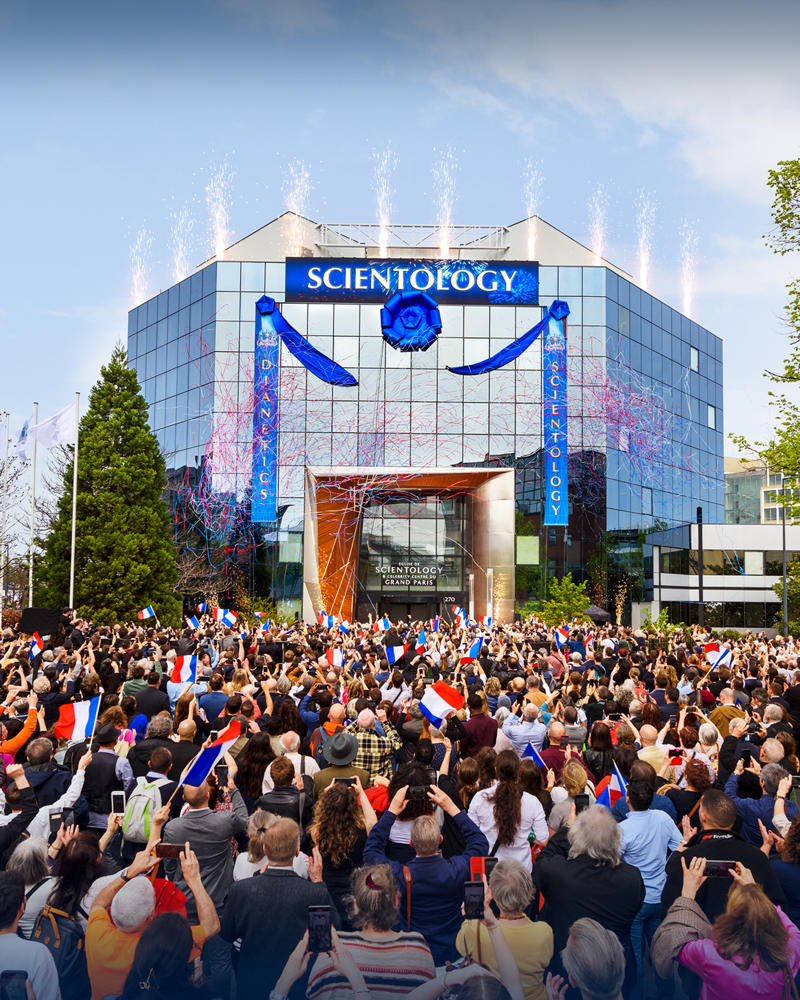The Background of Scientology: From Its Starting to Existing Day
The Background of Scientology: From Its Starting to Existing Day
Blog Article
Unmasking Misconceptions: Separating Reality From Fiction About Scientology

Beginnings of Scientology
The beginnings of Scientology trace back to the mid-20th century when L. Ron Hubbard, a science fiction writer, established the idea system in the 1950s. Hubbard's development of Scientology came from his earlier self-help system called Dianetics, which he presented in the 1940s - Scientology. The shift from Dianetics to Scientology noted a change towards a more extensive spiritual ideology that incorporated aspects of psychology, Eastern spiritual customs, and Hubbard's very own theories on human presence
Hubbard's expedition right into the human mind and spirit brought about the creation of Scientology as a religion focused around the concept of spiritual enlightenment and self-improvement through a process called auditing. Bookkeeping, a form of spiritual counseling, intends to aid people get over emotional and psychological barriers, referred to as engrams, that prevent individual growth and understanding.
As Hubbard's trainings got appeal, Scientology progressed right into an international activity with a significant following. Despite criticisms and controversies bordering its techniques and ideas, Scientology remains to draw in followers seeking spiritual fulfillment and individual growth.
Core Beliefs and Practices

Another fundamental aspect of Scientology is the concept of the Thetan, the spiritual essence of an individual that goes beyond the physical body. Followers intend to understand and reinforce their link to the Thetan via numerous techniques such as research training courses and filtration rituals.
The Church of Scientology likewise puts a solid focus on the importance of individual duty and the idea that individuals have the power to shape their very own fates. With adherence to honest guidelines and the quest of self-improvement, specialists of Scientology make every effort to attain better levels of happiness, success, and spiritual fulfillment.
Objections and debates
In the middle of Scientology's core beliefs and techniques exists a landscape marked by debates and criticisms that have actually stimulated intense debate and analysis. One of the major objections leveled against Scientology is its deceptive nature and the claimed exploitation of its members. If they attempt to leave, former members have actually spoken out regarding feeling pressured to contribute large amounts of money to the Church and encountering severe repercussions. In addition, Scientology's status as a tax-exempt spiritual company in some countries has actually been a point of opinion, with doubters suggesting that its techniques are more comparable to an organization than a religious beliefs. Scientology.
An additional location of debate borders the Church's therapy of movie critics and skeptics. Records have actually arised of harassment, intimidation, and legal threats guided at those who talk out dig this versus Scientology. This has actually raised concerns regarding liberty of speech and the company's commitment to transparency and responsibility.
While Scientology has actually emphatically rejected a number of these allegations, the objections and controversies bordering the Church remain to sustain public suspicion and analysis.
Scientology's Impact in Society
Scientology's impact expands to the realm of psychological health and wellness, where its sights on psychiatry and psychology have sparked disputes within the medical neighborhood. In the realm of enjoyment, Scientology's association with top-level celebrities has actually brought focus to the religion, both favorably and negatively. The involvement of renowned figures in Scientology has, in some instances, served to promote the religion, while in others, it has attracted criticism and increased inquiries regarding the church's ideas and practices.
Debunking Common Misconceptions
The Church of Scientology is lawfully acknowledged as a faith in many countries, consisting of the over here United States, where it has tax-exempt standing. Like other religions, Scientology offers spiritual support and techniques for its participants.
Another mistaken belief is that Scientology compels its members to cut ties with their households. In truth, the church emphasizes the value of family members partnerships and urges participants to maintain healthy connections with their loved ones.

Verdict
To conclude, it is essential to separate fact from fiction when reviewing Scientology. By examining its beginnings, core beliefs, conflicts, and influence in culture, we can debunk common misunderstandings bordering this faith. It is critical to come close to the subject with a essential and unbiased way of thinking in order to recognize Scientology precisely and right.
Rooted in a foundation of spiritual knowledge and individual growth, Scientology's core beliefs and techniques incorporate a diverse range of principles and routines. Central to Scientology is the idea that humans are immortal spiritual beings that have forgotten their real nature. The involvement of famous numbers in Scientology has, in some cases, served to popularize the faith, while in others, it has drawn objection and increased concerns regarding the church's ideas and practices.
The Church of Scientology is legitimately acknowledged as a religious find more beliefs in lots of nations, including the United States, where it has tax-exempt condition. Like other faiths, Scientology supplies spiritual assistance and practices for its participants.
Report this page